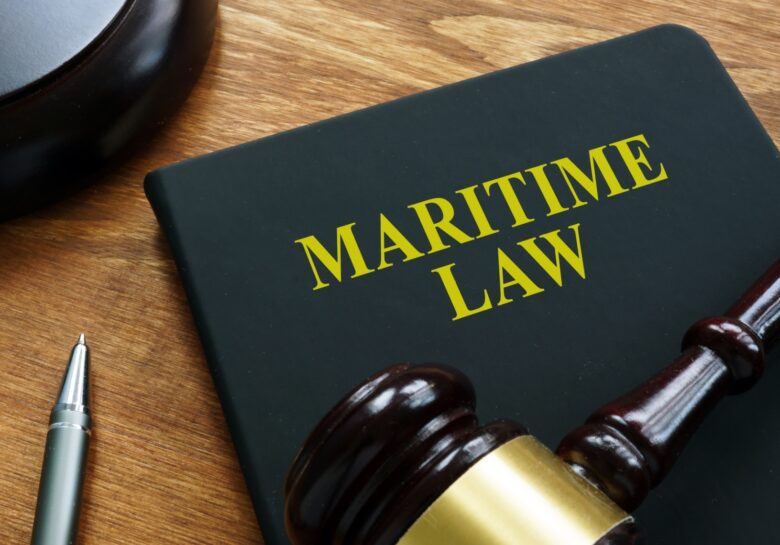The Jones Act is a federal law that applies to workers who are employed on vessels in navigable waters. It provides compensation for maritime workers who are injured or become ill while working at sea. This compensation may include medical expenses, lost wages, and other benefits. However, the process of filing a claim under the Jones Act can be complicated and confusing, especially for those who are not familiar with maritime law.
One of the main risks associated with working at sea is the potential for accidents and injuries. Workers on ships may be exposed to a variety of hazards, including heavy machinery, rough seas, and inclement weather. These risks are compounded by the fact that medical care may not be readily available when a worker is injured or becomes ill while at sea. The risk associated with working at sea is much higher than that of other careers. Texas residents who work on a ship are not covered under Texas worker’s compensation laws. When they are injured under these circumstances, they may need the help of a Jones Act lawyer.
There are hazards in every workplace, and workers depend on their employers to provide a safe work environment. Even if that work environment is a ship out on the water at sea, workers expect to be safe while doing their jobs.
When Texas residents who work at sea get hurt on the job, they are covered under the Jones Act instead of worker’s compensation insurance.

Source: canva.com
Contents
The Merchant Marine Act of 1920
The Merchant Marine Act of 1920 is also known as the Jones Act. It governs commercial activities at sea along with the rights of those who work on the vessels. Those who work on ships are referred to as seamen and often face potential safety issues due to their unique work environment.
The Jones Act was created by the federal government to offer seamen certain protections since their workplace is not located in any specific state or territory. It gives seamen the right to sue their employers to recover benefits under this maritime law due to an injury that occurred while employed on the ship at sea.
Maritime Law
Maritime Law is also sometimes called Admiralty Law. It is a body of laws that govern maritime businesses and nautical matters, such as the carriage of goods, passengers, and civil matters at sea. There are a variety of financial and contractual issues that can fall under maritime law when they take place on a ship at sea.
While many people often use the Jones Act and Maritime Law interchangeably, that is actually not correct. The Jones Act is a subsection of Maritime Law that governs the rights of maritime workers who suffer on-the-job injuries while working at sea. The Jones Act is the specific section of Maritime Law that deals with seamen’s rights while at work on the ship.

Source: canva.com
Covered Vessels
Workers often incorrectly assume that they only have rights under The Jones Act if they work on a cruise ship. While cruise ship workers do have rights to a safe workplace under the Jones Act, it covers workers on other seabound vessels too. The Jones Act was passed to cover workers on barges, charter boats, casino boats, cargo ships, and much more.
The Jones Act is also known as protectionist legislation for employees who work abroad on almost any vessel that travels the seas. These workers face unique challenges in their work environment, and the risk of injury is significantly higher than that of other injuries.
Qualifications for Compensation Under the Jones Act
The Jones Act covers seamen workers who sustain injuries during employment because they are not covered under the same worker’s compensation laws as other landbound employees. Seamen must typically meet a few qualifications to be eligible for benefits or compensation due to an injury.
- First, the employee must meet the definition of seamen by being employed in any capacity aboard a seabound vessel and working at least 30 percent or more of their time abroad said vessel.
- Injury or illness must be sustained during employment.
- The injury or illness must be due to the negligence of your employer or another employee.
If you work aboard a maritime vessel and you aren’t sure if your illness or injury may be covered by the Jones Act, then you may want to talk to a Jones Act Lawyer to find out. Sometimes even injuries occurring on shore or aboard another vessel may be covered under The Jones Act if they are required for employment. A Jones Act Lawyer can offer specific details and let you know for sure if you may be eligible to recover compensation.
Contract workers and docker workers don’t technically meet the definition of seamen and likely would not qualify for benefits under The Jones Act. Employees who meet the technical or legal definition of seamen specifically contribute to the vessel’s functions and spend a significant amount of their time working aboard the vessel while afloat or at sea.

Source: canva.com
Why Talk to a Jones Act Lawyer
If you work aboard a maritime vessel and have suffered and on job injury, you should speak to a Jones Act lawyer to see if you may qualify for compensation or benefits. Captains, vessel owners, and employers are required to provide a safe work environment, whether afloat or at sea.
The Jones Act incentivizes employers to provide a safe and hazard-free work environment aboard the vessels they operate. Filing a claim under The Jones Act means you need to be able to prove negligence on the part of your employer or another employee. A Jones Act Lawyer will be able to distinguish acts of possible negligence from other behaviors and let you know if you may be able to recover compensation for your on-the-job injury.
The Jones Act Special Circumstances
Sometimes there are special circumstances regarding a case that may be covered under The Jones Act. For Instance, in a case of wrongful death during a workplace injury aboard a maritime vessel, the immediate family members may be entitled to compensation under The Jones Act. If a loved one suffered a fatal injury while working aboard a maritime vessel, then you may be able to file a suit under The Jones Act. If this is your position and you have questions, speak to a Jones Act Lawyer today to get the answers you’re looking for.

Source: consideringadoption.com
Talk to a Jones Act Lawyer Today
The Jones Act was established to protect the rights of maritime workers who work aboard seaworthy vessels in the economy at sea. It is a section of maritime law that was established to protect the rights of workers aboard seaworthy vessels who aren’t eligible for worker’s compensation insurance. If you have suffered an on-the-job injury working aboard a boat or ship in the economy at sea, you may be eligible for compensation under the Jones Act. Speak to a Jones Act Lawyer today to have all your questions answered and see if you may be able to recover compensation under The Jones Act.
